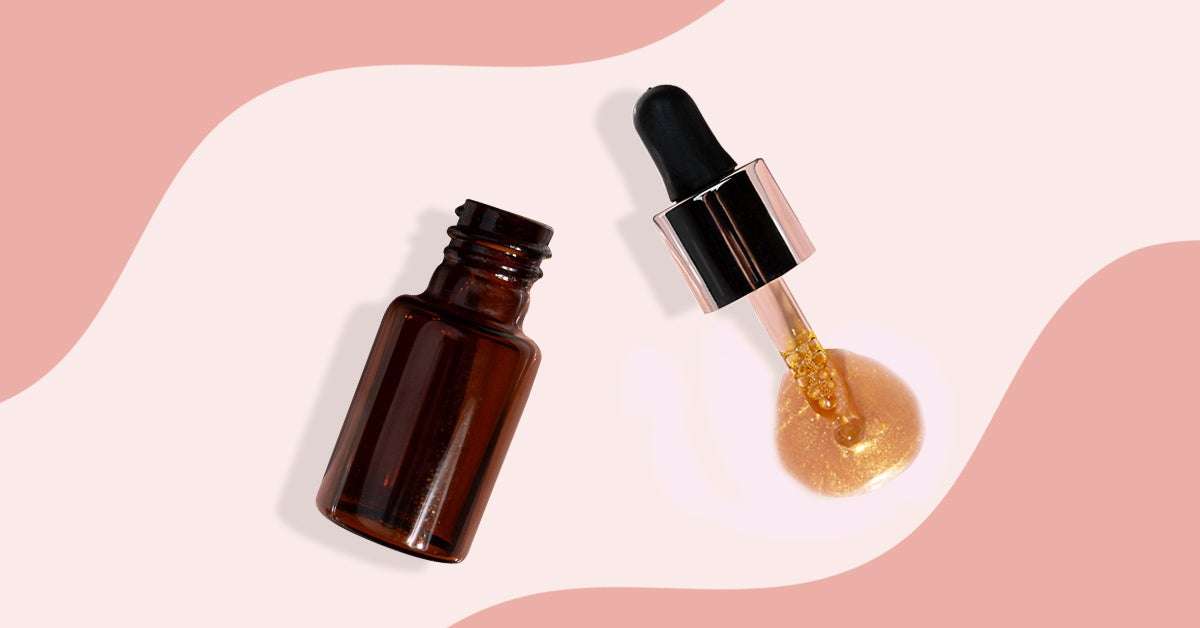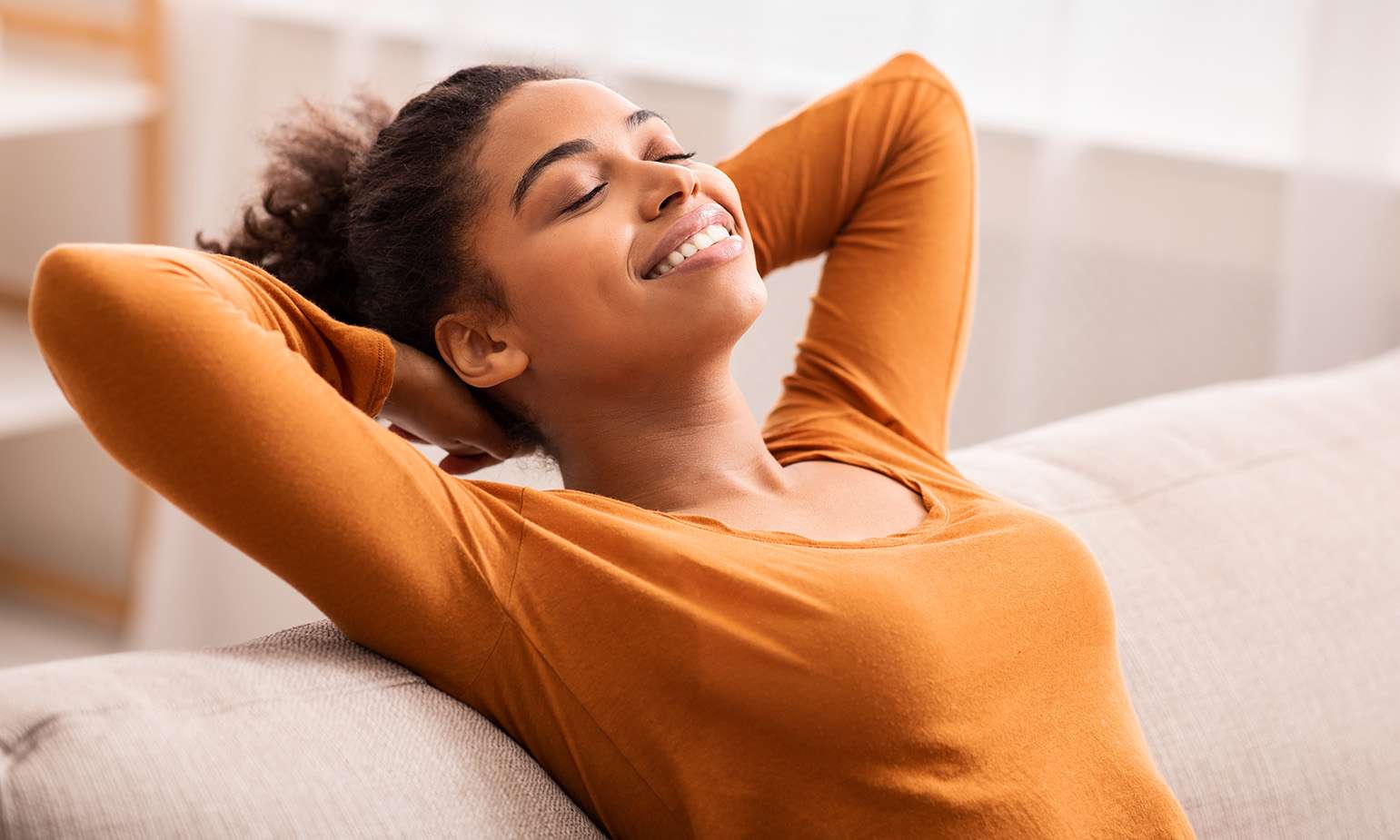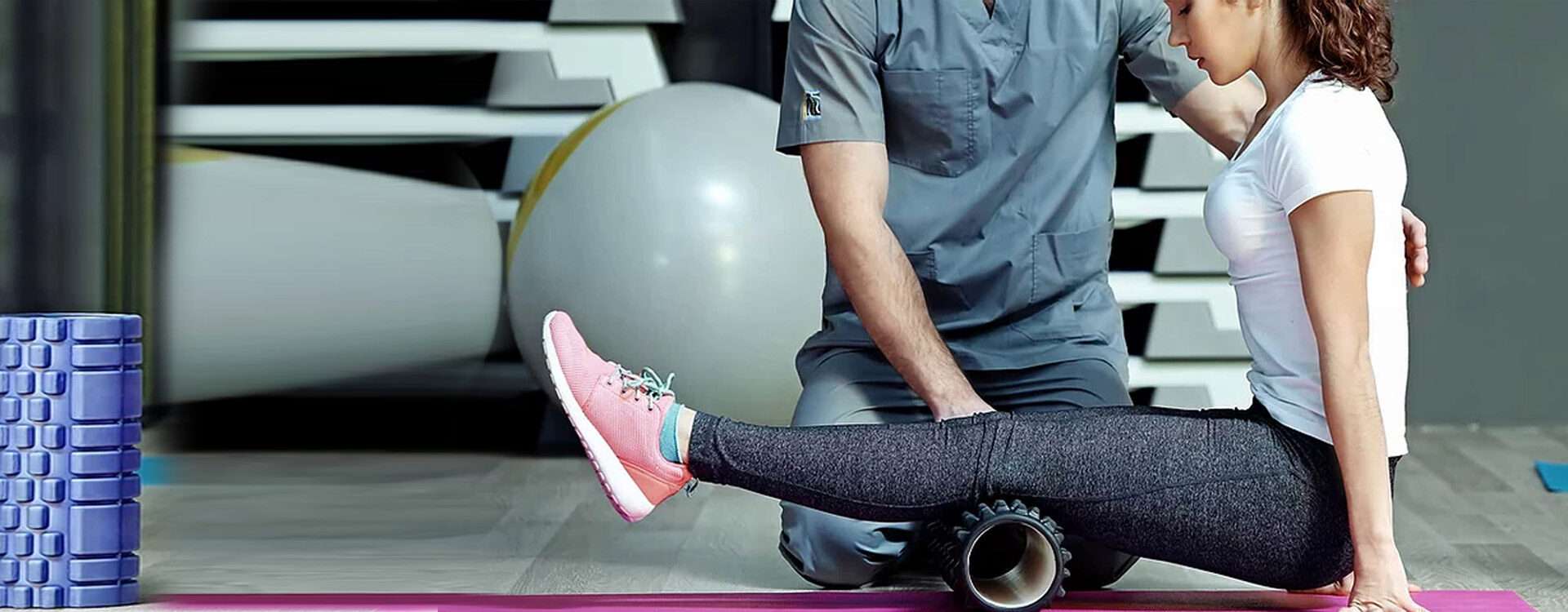We do the research so you can find trusted products for your health and wellness.
Our team thoroughly researches and evaluates the recommendations we make on our site. To establish that the product manufacturers addressed safety and efficacy standards, we:
Healthline only shows you brands and products that we stand behind.
We include products we think are useful for our readers. If you buy through links on this page, we may earn a small commission. Here’s our process.
There are several ways to use essential oils for stress, from applying topically to inhaling the scent after diluting with water. A general rule of thumb is to follow the specific instructions for each essential oil you try. If you’re going to apply it topically, it’s best to test the oil on a small area of skin first to identify a potential reaction.
Essential oils are highly concentrated, which means you should exercise caution when trying them for the first time. They should also be used in moderation, especially if being applied topically, since they’re absorbed into the skin.
A 2016 review even found that aromatherapy was effective at reducing pain, when combined with conventional treatments.
Your olfactory system directly affects the part of your brain that regulates emotion. That’s why smells can trigger memories and elicit feelings — both negative and positive. Aromatherapy can help in reducing stress and anxiety to engage a general state of calm.
Aromatherapy can be a natural remedy for stress relief. The practice involves inhaling the scent of essential oils, which are extracted from plants, in order to promote health and well-being.
Pay attention to dosage, purity, application method, and any possible drug interactions. Some oils are considered safe if inhaled, but they may be irritating if applied to the skin in concentrations as low as 3 to 5 percent.
However, as with any substance you introduce to your body, it’s best to take several precautions. Essential oils require dilution to prevent adverse reactions. As a general rule, you should keep concentration levels of essential oils below 5 percent.
Essential oils are generally considered safe to use when used properly.
We chose these essential oils for their stress-reducing and anti-anxiety properties. We also took a look at any studies that supported the effectiveness of these properties.
Best for relaxation
Lavender is one of the most popular essential oils for beginners and aromatherapy experts alike. As one of the several essential oils with anxiolytic, or anti-anxiety, properties, lavender can create an overall calming effect.
In a 2013 study, aromatherapy using a 3 percent lavender oil spray on clothing was shown to reduce workplace stress.
Lavender emits a floral, aromatic scent and has many uses. You can add a few drops to a diffuser, apply it directly to your skin, or combine it with other products or oils.
Try this:
Best for sleep
A popular ingredient in tea, the chamomile plant is known to have sedative effects. Chamomile essential oil is no different and has relaxation properties that can aid with sleep.
Chamomile essential oil has some solid research behind it. Over the years, it’s been used for a variety of ailments and conditions, such as digestive upset, anxiety, wounds, pain, and sleep problems.
A 2017 study found that, after 8 weeks, 58.1 percent of participants experienced reduced symptoms of moderate to severe generalized anxiety disorder when using chamomile extract.
A small 2018 study found that chamomile therapy helped reduce anxiety symptoms and increased morning cortisol levels.
Try diffusing or applying a few drops of Roman chamomile essential oil before bed to experience the calming effects.
Try this:
Best for meditation
Another essential oil with anxiolytic properties, orange essential oil is a citrus-based oil that can create a relaxing state.
A 2012 study found that participants who inhaled sweet orange essential oil didn’t have an increase in anxiety or tension during an anxiety-inducing situation, unlike those who inhaled a control aroma (tea tree oil) or a placebo.
The bright scent, however, can also heighten the senses and increase alertness that, when combined with the calming effect, can create a balanced mood that’s great for meditating.
Orange essential oil can be diffused or distilled with other products.
Try this:
Best for anxiety
Sandalwood oil comes from the wood and roots of Santalum album, or the East Indian sandalwood tree. This is one of the most valuable trees in the world.
Earthy and warm, sandalwood essential oil also features anxiolytic properties, which make it great for reducing anxiety.
A small 2006 study found that sandalwood oil was effective at reducing anxiety among participants. The sample size was too small to draw conclusive findings, but the results were promising.
The gentle and woodsy essential oil can be diffused, applied topically, or directly inhaled.
Try this:
Best for stress
Clary sage (Salvia sclarea) is a flowering herb that’s native to the Mediterranean basin. It’s best suited to address stress, because it can have an effect on cortisol, the stress hormone.
According to a 2014 study, clary sage was effective at decreasing cortisol levels and produced an antidepressant-like effect for menopausal women when inhaled.
Consider diffusing this essential oil to create a calming effect throughout a room, or inhale it directly when applied to a cotton ball or tissue. It can also be applied directly onto your skin when diluted.
Try this:
Best mood lifter
Lemon, sourced from the leaves of the lemon plant, have been found in preliminary animal studies to have sedative and anxiety-reducing properties.
Lemon essential oil is a natural mood lifter and stress-reducing oil with a bright aroma and many properties that can contribute to a positive mood.
According to a 2018 study, lemon essential oil had an effect on dopamine activities in mice. A 2005 study also found that lemon oil significantly enhanced the attention level, concentration, cognitive performance, and mood of students during the learning process.
Try this:
Best for diffusing
Bergamot is another anxiolytic essential oil with a citrus aroma. It’s sourced from the peel of a citrus fruit known as Citrus bergamia.
While research on the effects of bergamot essential oil is fairly limited, some studies show that the oil may help reduce stress and promote relaxation.
A 2017 study found that inhaling bergamot essential oil for 15 minutes improved positive feelings of participants in the waiting room of a mental health treatment center.
Bergamot is best when diffused or directly inhaled. However, this oil has photosensitive properties that cause it to react to the sun. When applied topically, bergamot can have a negative reaction to the sun and can potentially burn your skin.
Try this:
Best for topical use
Distilled from the flower, rose essential oil not only creates a gentle floral aroma, but it also carries stress-reducing properties.
A 2009 study found that rose oil caused a significant decrease of breathing rate, blood oxygen saturation, and systolic blood pressure when applied topically. The study participants also reported feeling much more relaxed after the oil treatment.
A 2014 study involving over 100 pregnant women found that rose oil lowered their anxiety levels during delivery.
Try this:
Best for depression
Jasmine oil is an essential oil derived from the white flowers of the jasmine plant, also known as Jasminun officinale. Jasmine essential oil is popular for its calming and uplifting properties.
A 2013 study examined the effects on brain activity when participants inhaled jasmine oil. Participants reported a significant decrease in negative emotions and an increase in overall mood.
A 2010 study that looked at jasmine essential oil found that, when compared with a placebo, jasmine oil increased blood oxygen saturation, breathing rate, and blood pressure. The participants in the jasmine oil group also reported feeling more alert.
The researchers concluded that the stimulating and activating effect of jasmine oil could be useful for relieving depression and improving mood.
Try this:
Best for rest
Ylang ylang is a yellow, star-shaped flower that grows on the Cananga tree (Cananga odorata). The tree grows in countries like India, Philippines, Malaysia, Indonesia and parts of Australia.
Derived from the ylang ylang flower, preliminary research from 2006 suggested that ylang ylang can help decrease blood pressure and create a relaxing effect.
The sweet floral aroma is great for when you need to rest and relax, but you aren’t seeking a sedative effect.
Try this:
We include products we think are useful for our readers. If you buy through links on this page, we may earn a small commission. Here’s our process.
Psych Central only shows you brands and products that we stand behind.
Our team thoroughly researches and evaluates the recommendations we make on our site. To establish that the product manufacturers addressed safety and efficacy standards, we:
- Evaluate ingredients and composition: Do they have the potential to cause harm?
- Fact-check all health claims: Do they align with the current body of scientific evidence?
- Assess the brand: Does it operate with integrity and adhere to industry best practices?
We do the research so you can find trusted products for your health and wellness.
Read more about our vetting process.
Looking for an essential oil to help alleviate stress? Here are the top 10 best-smelling essential oils for various types of stress relief.

Share on Pinterest
Elena Kalfa/Getty Images
While research suggests essential oils have some health benefits, the Food and Drug Administration (FDA) doesn’t monitor or regulate the purity or quality of essential oils. It’s important to talk with a healthcare professional before you begin using essential oils, and be sure to research the quality of a brand’s products. Always do a patch test before trying a new essential oil.
Essential oils have been used for several thousands of years around the world. Only recently have their wide-ranging effects been studied by Western scientists.
Each year, studies come out revealing the profound effect essential oils may have on the human mind and body. For example, three studies from 2016, 2014, and 2014 indicate that essential oils may help:
- reduce pain
- calm anxiety
- promote relaxation
Each essential oil can have slightly different effects because of the different scent it gives off. This is why you will want to pay special attention to which essential oil you choose.
Even within stress relief, you can experience unique effects from each essential oil, such as:
- feelings of calmness
- reduced tension
- alleviated depression
- mood enhancement
How do essential oils help reduce stress?
Smelling certain essential oils could have an immediate calming effect on the brain. This is because the scent molecules from the oil travel through the olfactory nerves and to the amygdala, the part of the brain involved with experiencing emotions.
For example, a 2010 study in mice found that inhaling linalool, a common component of many essential oils, can bring on anti-anxiety effects.
Criteria we used to pick
We picked the top 10 essential oils for stress based on research that has come out within the past 2 to 15 years on the effects of each oil, prioritizing more recent studies when available. We gave extra attention to studies that were conducted on humans instead of animals.
Each study we pulled from to make our list is from a reputable source, and the essential oils included are some of the most popular ones on the market.
Plus, specific products we link to have been vetted to ensure they meet Psych Central’s medical, editorial, and business standards.
When to seek help
Essential oils may help reduce stress, but that does not mean they are a replacement for treatment from a healthcare or mental health professional. If your stress feels unmanageable, consider seeking professional help.
How the essential oils compare
Essential oilBest forScentLavenderoverallfloral with herbaceous undertonesLemongrassreducing tensioncitrusyChamomileanxietysubtle warm herbal and slightly floralEucalyptuspain reliefpotent yet mintyYlang-ylangrelaxationfloral but rich and earthyPeppermintalertnesscool and refreshingJasmineboosting your moodfloral and sweetDamask rosedepressionfloral and sweetBergamotaromatherapycitrusy with hints of floralNerolipostmenopausal peoplesweet with a floral-honey smell and hints of spiciness
How to choose a high quality essential oil
When buying essential oils, getting a high quality product is very important. It’s often recommended to avoid multilevel marketing giants, as their oils are often mass-produced and the manufacturers may not be open about their sourcing or sustainability efforts. These oils may also be overpriced.
If you’re interested in trying essential oils to improve well-being, it may be worth signing up for a class by an experienced aromatherapy expert before you dive in. You’ll not only learn about which oils may be useful for different purposes, but the class may also help you train your nose to spot the difference between high quality oils and fakes.
Here are some additional tips to help you pick a high quality essential oil:
- What does the bottle look like? A high quality essential oil will be stored in a dark (amber) glass bottle that’s tightly sealed since light, heat, and plastic may damage the oil.
- What does the label say? A high quality essential oil will state that it’s 100% pure essential oil. It will list both the common and Latin name of the plant from which the oil is derived. Ideally, it should also state what parts of the plant were used to make the oil and how it was grown (i.e., traditional, wild-crafted, or organic).
- Can you determine the source? For a good product, it should be relatively easy to find out where the plant was grown. Some manufacturers may list the country of origin on the label or provide a lot number you can look up. If you’re buying online, the product description page should clearly state the origin.
If you’d like to learn more, consider checking out our sister site Greatist’s in-depth guide on buying essential oils.
How to use essential oils safely
It’s extremely important to be safe when using essential oils. For instance, essential oils should not be used internally, which means you shouldn’t drink the oil, use capsules with the oil, or ingest it in other ways.
Also, take note that some essential oils can be poisonous to pets and should not be used as aromatherapy if they’re in the area.
Essential oils also need to be kept out of reach from children at all times, as many are toxic if ingested. The oils can also be dangerous for pregnant or breastfeeding people. It’s a good idea to be mindful of who else may be inhaling aromatherapy you’re using.
Plus, essential oils should never be applied directly to your skin. Doing so may result in irritation, rashes, hives, and more. For that reason, the oils must be diluted in a carrier oil before applying it to the skin or using it in a bath.
Also, unless directed to do so by a healthcare professional experienced in working with essential oils, it’s best to avoid using essential oils on or near irritated skin, wounds, rashes, or on top skin that has symptoms of conditions like psoriasis or eczema.
In general, unless recommended by an experienced healthcare professional, it’s not recommended to use essential oils on:
- infants
- children
- pregnant people
- older adults
- people with serious health conditions
Citrus oils are particularly sensitive to the skin when applied in the sun, so it’s important to be careful even if you’re applying diluted essential oils to your skin. When diluting essential oils for topical use, you will want to make sure you find out the safe ratio of essential oil to base oil.
Finally, before you begin fully incorporating essential oils into your routine, we recommend doing a patch test to see whether your skin negatively reacts to the oils.
A patch test is when you apply a highly diluted amount of a product on a small area of your skin and monitor your skin’s reaction for 48 to 72 hours. A 1:30 ratio is recommended when performing your first patch test.
An even safer route than topic use, however, is using a diffuser or smelling the oils from the bottle.
Let’s recap
Depending on how you’re looking to manage your stress and what scents you like best will determine which essential oil is right for you.
For instance, if you’re looking for a more calming and subtle scent, peppermint, rose, ylang-ylang, or chamomile oil may be the best options. These are particularly good options to help you decompress and give your brain a rest.
Slightly stronger scents that still have a great calming effect include lavender, eucalyptus, and lemongrass oil. However, if you want a stronger scent as more of a pick-me-up to help lift your mood like a cup of coffee in the afternoon can for many people, we recommend neroli, bergamot, or jasmine oil.
Although each scent can have slightly different effects on your mood and overall mental state, it’s really more important to find a scent you enjoy.




